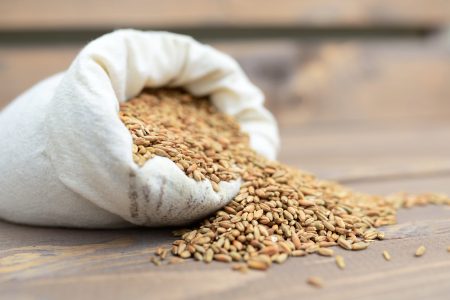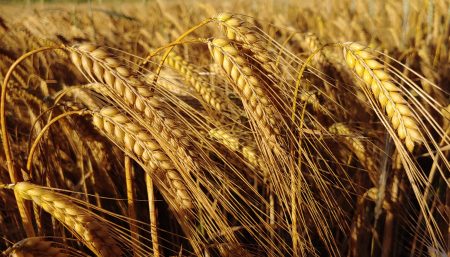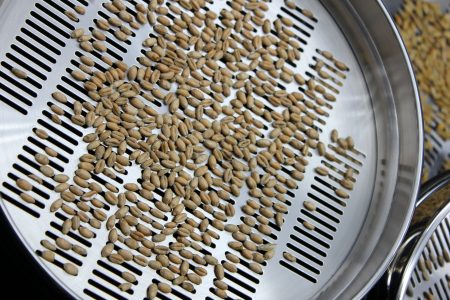 One of the fundamental quality parameters of any quantity of cereal is the content of impurities mixed with the desired grain – be it a small 50-kilogram sack or a whole train load of cereal or cereal product. The classification of grain purity is an important quality parameter and a primary driver for pricing of a cereal shipment. Additionally, quality assessments in accordance with international standards is mandated by all European countries for grain intervention.
One of the fundamental quality parameters of any quantity of cereal is the content of impurities mixed with the desired grain – be it a small 50-kilogram sack or a whole train load of cereal or cereal product. The classification of grain purity is an important quality parameter and a primary driver for pricing of a cereal shipment. Additionally, quality assessments in accordance with international standards is mandated by all European countries for grain intervention.
The major quantifiable parameter to classify the purity of cereals is the fraction of “Besatz” – a term borrowed from the German language for the combined impurities fraction in a grain sample – including foreign material of organic and mineral origin, undersized and broken grains, foreign cereal material and several more types of impurities. For European intervention and grain trade, the determination of grain purity is governed by the standard EN 15587: “Cereal and cereal products - Determination of Besatz.”
The standard EN 15587 covers the determination of Besatz by means of sieving and visual sorting for the following cereal types:
 Wheat (Triticum aestivum L.)
Wheat (Triticum aestivum L.)- Durum Wheat (Triticum durum Desf.)
- Rye (Secale cereale L.)
- Triticale (Triticosecale Wittmack spp.)
- Feed Barley (Hordeum vulgare L.)
The primary purpose of EN 15587 is to lay out a standardized and reproducible methodology for the determination of Besatz in quantities of the aforementioned types of cereal, whereas Besatz is defined as:
Besatz: All matter of a sample of grain other than the basic cereal of unimpaired quality. It comprises four principal fractions which are defined in Section 3 of EN 15587:
- Broken grains (3.2)
- Grain Impurities (3.3)
- Shrivelled grains (3.3.1)
- Other cereals (3.3.2)
- Grains damaged by pests (3.3.3)
- Grains with discolored germs (3.3.4)
- Mottled grains (3.3.4)
- Grains showing heat damage as a result of drying (3.3.5)
 Sprouted grains (3.4)
Sprouted grains (3.4)- Miscellaneous impurities - “Schwarzbesatz” (3.5)
- Extraneous seeds (3.5.1)
- Unsound grains (3.5.2)
- Extraneous matter (3.5.3)
- Husks (3.5.4)
- Ergot (3.5.5)
- Bunted grains (3.5.6)
- Impurities of animal origin (3.5.7)
The test methodology laid out in Section 4 of EN 15587 is a combination of sieving using a set of common laboratory test sieves according to EN ISO 5223 and a manual, visual extraction of the Besatz fractions, followed by sieving with an ISO 5223 sieve specific to the cereal type to be analyzed. All samples and extracted fractions are to be weighed to the nearest 0.1 or 0.01 g and converted to percentage fractions of the initial representative sample to provide a test report for the entirety of the cereal shipment.
A procedural diagram of the methodology outlined in EN 15587 can be found below:
The common set of grain sieves specified in EN 15587 contains the following articles:
- Test Sieve with Oblong Apertures: 3.55 x 20.0 mm
- Test Sieve with Oblong Apertures: 1.00 x 20.0 mm
- Collecting Pan consisting of the same material as the test sieves
The second sieving stage required by EN 15587 is to be completed with one grain-specific sieve and a collecting pan:
- 1.80 x 20.0 mm: Rye
- 1.90 x 20.0 mm: Triticale, Durum wheat
- 2.00 x 20.0 mm: Common wheat
- 2.20 x 20.0 mm: Feed Barley
SPECIFICATIONS: TEST SIEVES • ISO 5223
- Frame Material: Stainless Steel AISI 304 (1.4301)
- Perforated Plate: Stainless Steel AISI 304 (1.4301)
- Aperture Size: from 1.00 mm
- Delivery Time: Ships within 5 days, plus shipping runtime
- Test Sieve Diameter: 200 mm
- Test Sieve Depth (H1): 32 or 50 mm
- Perforated Area: ⌀ 185 mm (Unperforated Margin)
- Documentation: Inspection Certificate 3.1 (EN 10204)
| DIAMETER | APERTURE TYPE | APERTURE SIZE | APPLICATION | PRODUCT DETAILS |
|---|---|---|---|---|
| 200 mm | Oblong | 1.00 x 20.0 mm | Fines, Besatz | Product Details |
| 200 mm | Oblong | 1.50 x 20.0 mm | Rice | Product Details |
| 200 mm | Oblong | 1.60 x 20.0 mm | Rice | Product Details |
| 200 mm | Oblong | 1.70 x 20.0 mm | Rye, Wheat | Product Details |
| 200 mm | Oblong | 1.80 x 20.0 mm | Rye, Oats | Product Details |
| 200 mm | Oblong | 1.90 x 20.0 mm | Durum Wheat, Triticale | Product Details |
| 200 mm | Oblong | 2.00 x 20.0 mm | Common Wheat | Product Details |
| 200 mm | Oblong | 2.20 x 20.0 mm | Feed Barley, Malting Barley | Product Details |
| 200 mm | Oblong | 2.25 x 20.0 mm | Intl. Alternative Size | Product Details |
| 200 mm | Oblong | 2.50 x 20.0 mm | Malting Barley | Product Details |
| 200 mm | Oblong | 2.80 x 20.0 mm | Malting Barley | Product Details |
| 200 mm | Oblong | 3.50 x 20.0 mm | Seeds | Product Details |
| 200 mm | Oblong | 3.55 x 20.0 mm | Besatz | Product Details |
| 200 mm | Round | 1.40 mm | Besatz | Product Details |
| 200 mm | Round | 1.80 mm | Sorghum, Flax | Product Details |
| 200 mm | Round | 4.50 mm | Corn / Maize | Product Details |

